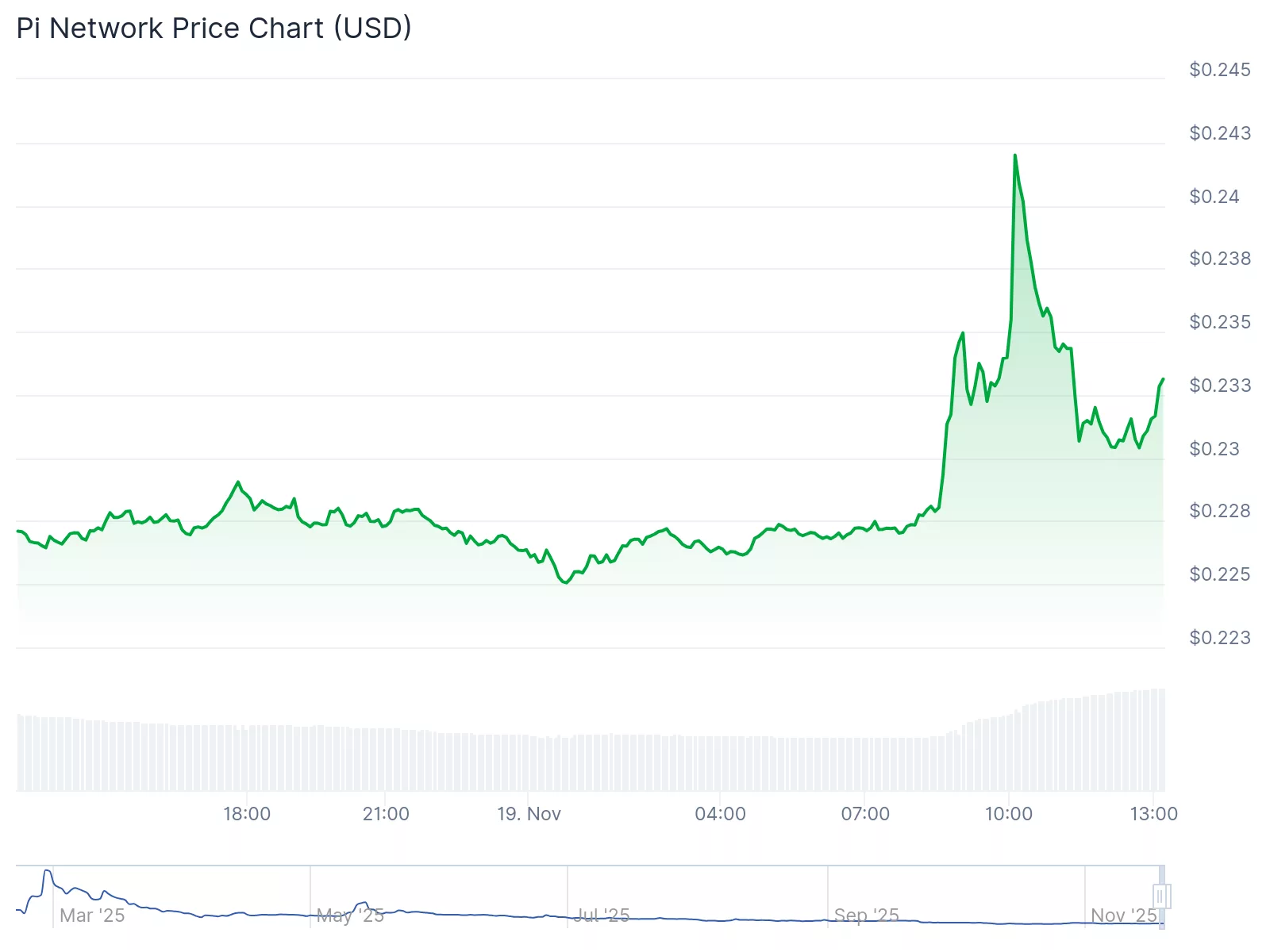
Pi Network says it is now fully compliant with the European Union’s Markets in Crypto-Assets (MiCA) regulation—an update that could open the door to trading its PI token across regulated exchanges in the EU and European Economic Area.
The claim, detailed in an updated whitepaper, marks the project’s most significant step yet toward entering mainstream, supervised markets.
Summary
- Pi Network is positioning its PI token for potential listings on regulated European exchanges and expanding access across the EU/EEA.
- The updated whitepaper outlines mobile-mined token distribution, strict KYC/KYB requirements, non-custodial wallets, audits, and utility-only token status.
- PI trades around $0.23 amid bullish technical signals and renewed whale accumulation.
Pi, a Layer-1 blockchain built on the Stellar Consensus Protocol and Federated Byzantine Agreement mechanisms, is positioning the update as the foundation for formal EU market access. The project emphasizes that it conducted no initial coin offering, instead distributing tokens through mobile mining and community participation. Of its 100 billion maximum supply, 8.2 billion tokens are currently in circulation.
Under the newly revised framework, Pi Network says it has implemented complete KYC/KYB requirements, third-party audits, fraud-prevention systems, and a non-custodial wallet that gives users complete control—along with the warning that lost private keys cannot be recovered.
Pi tokens, the document notes, confer no ownership, governance rights, or dividends and are intended solely for payments within the ecosystem.
With MiCA compliance in place, the project plans to pursue listings on regulated European exchanges once market-admission approvals are obtained. Pi Network stresses that it has conducted no fundraising and that all existing PI trading occurs on secondary markets.

The token traded near $0.23 on Wednesday, with chart patterns suggesting a potential reversal. Analysts note the formation of a double-bottom at $0.1948 and narrowing Bollinger Bands—signals typically associated with reduced volatility and a possible short-squeeze setup. A large whale has also accumulated more than 900,000 tokens this week, despite the market downturn, now holding roughly $85 million worth of PI.
Founded in 2019 by Stanford PhDs Nicolas Kokkalis and Chengdiao Fan, Pi Network has recently tried to shed its long-standing “ghost chain” reputation. A new investment in OpenMind, an AI-robotics firm, aims to connect Pi’s decentralized node network with real-world robotics infrastructure, potentially expanding Pi’s utility. The project is also testing a decentralized exchange and automated market maker, signaling its ambition to transition from a closed ecosystem to a functional blockchain economy.

Source link

